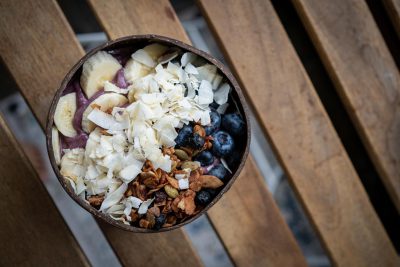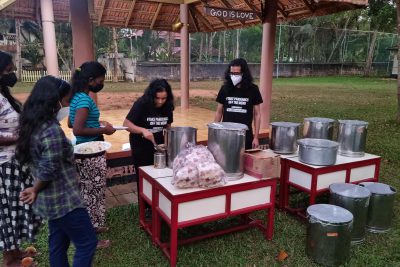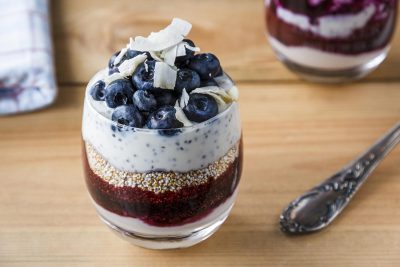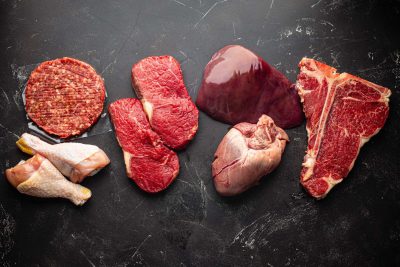The idea that we need to eat animal products to get enough protein is a myth. Protein exists in all kinds of different plant sources that don’t come with the same environmental toll, health risks or horrendous animal suffering that meat and dairy products come with. So, we have listed the top 20 sources of vegan protein to show just how many amazing options there are!
How Much Protein Do I Need?
That depends—and will vary depending on any goals you may have, such as building muscle—but generally the US recommended daily intake of protein is around 0.8g per kilogram of our body weight. However, it’s important not to get too hung up on carefully counting grams—what’s important is making sure the food we choose to get protein from is good for us, animals, and the planet. The best way to do that is to get our protein from plant-based sources!
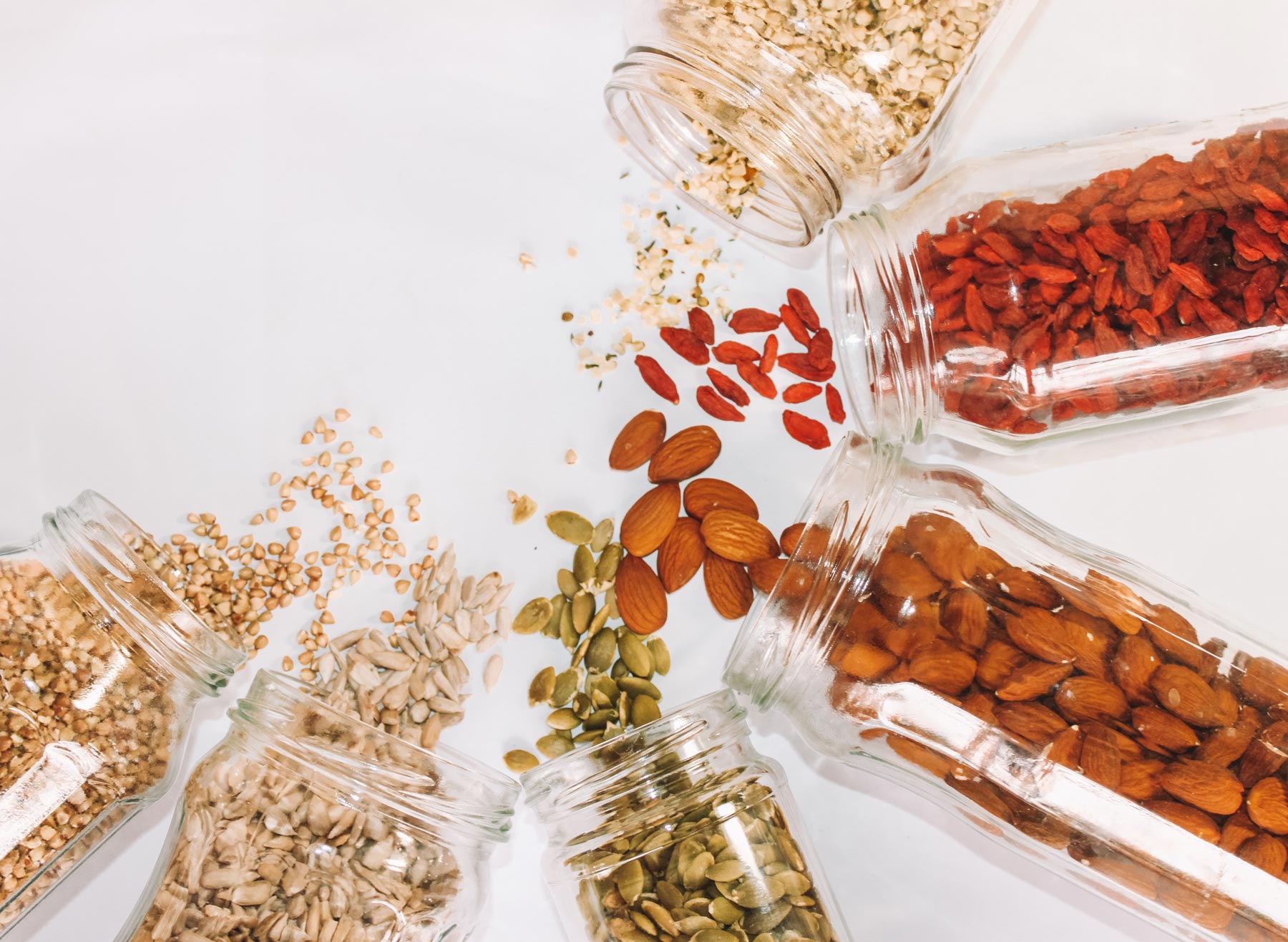
What Do Vegans Eat For Protein?
Plants, plants, and more plants. The wonderful thing about getting your protein from plant sources, is that they come free from the long list of health risks associated with eating animal products. Eating processed meat is scientifically proven to cause cancer and other meat and dairy products have been shown to increase our risk of chronic diseases, such as heart disease, diabetes, and high blood pressure.
There is no evidence that getting protein from plant sources increases any health risk factors—in fact, there is plenty of evidence that says plant protein can decrease health risks.
1. Soy
Tofu, tempeh, and edamame are all derived from the mighty soybean. All are delicious when cooked, are complete proteins, and are a staple for most vegans! They contain around 20 grams of protein per 100 grams and are also a good source of iron, calcium, and other key vitamins and minerals.
Soy products come under unfair criticism, as they are often associated with deforestation, particularly in the Amazon rainforest. But vegans are not to blame, as 77 percent of soy is grown to feed directly to animals, for meat, egg, and dairy production.
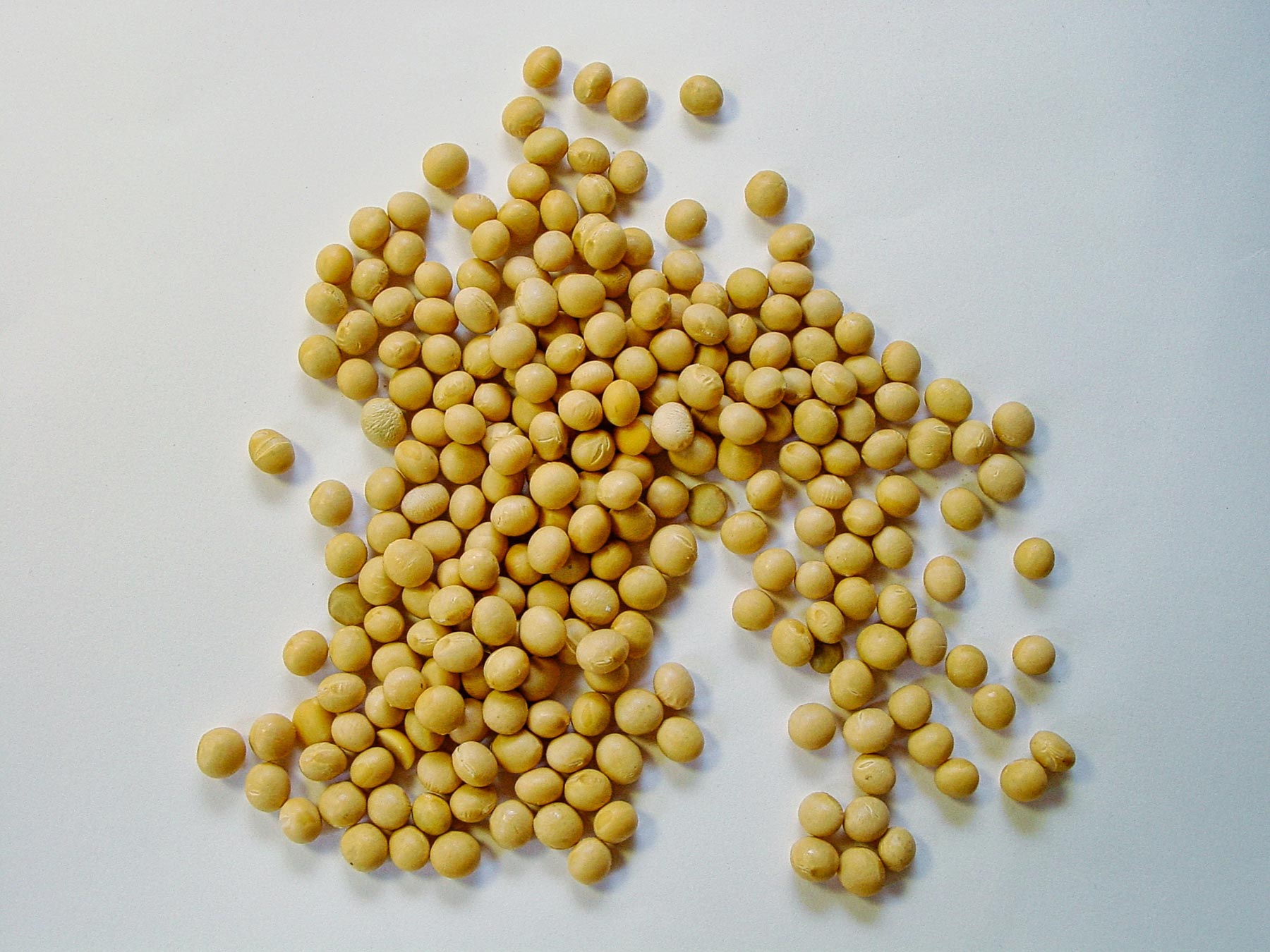
2. Beans
Almost all varieties of bean are high in protein, as well as a long list of other beneficial nutrients, like fiber, complex carbs, iron, folate, phosphorus, potassium, manganese, and more. In fact, each bean really deserves its own section here, as they are all amazing for us in their own ways!
When looking for a high-protein bean hit, look out for chickpeas (aka garbanzo beans), kidney, pinto, and black beans. Try them in a tasty chili, curry, or stew!
3. Lentils
Lentils really are a plant powerhouse—they contain 18g of vegan protein per cup, making them a really protein-dense option.
They are also low in fat and high in fiber, providing over half your daily fiber needs in one cup. And most importantly, when cooked with turmeric and other spices, they create one of the most simple, warming, inexpensive, and delicious dishes in the world—lentil dahl.
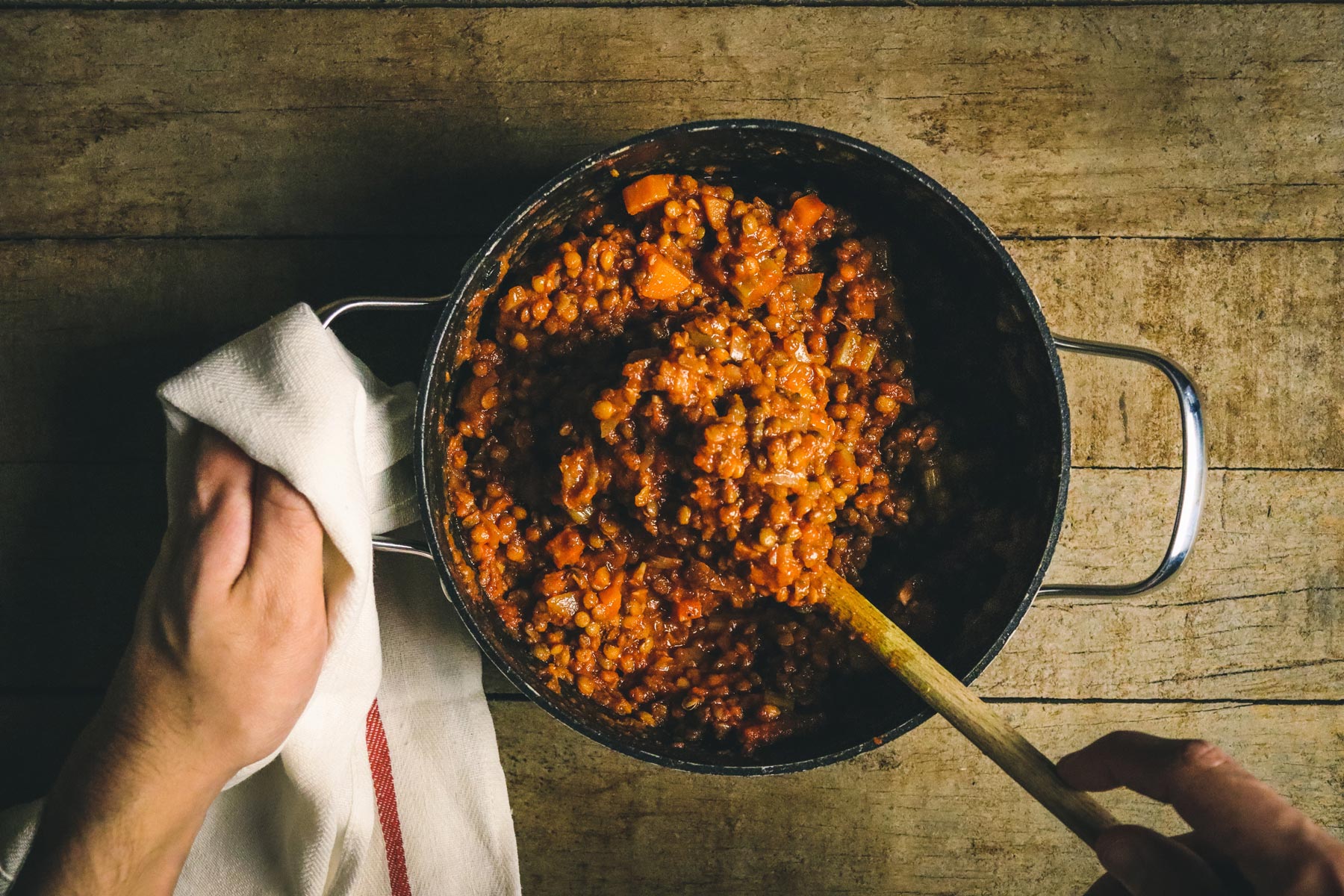
4. Seitan (Vital Wheat Gluten)
Seitan, made from gluten, closely resembles the taste and texture of meat and is very high in protein, packing in 25 grams per 100 grams. Any vegan fried chicken is likely to be made of seitan and will fool even the most avid meat eater!
5. Quinoa
This ancient grain is a complete protein and packs around 10 grams of protein into each cup. It is also considered a superfood as it is an excellent source of complex carbs, iron, manganese, phosphorus and magnesium.
6. Chia Seeds
Chia seeds are the ultimate nutrition sprinkle. Just a tablespoon will provide 2 grams of protein, so these tiny seeds are a fantastic addition to smoothies or oatmeal for an extra protein hit. They are also a source of omega 3 fatty acids, calcium, various antioxidants, iron, magnesium and selenium. These tiny seeds are truly mighty!
7. Brown Rice
Brown rice is a surprising vegan protein source to most people, but it makes up the protein element of many powdered supplements and vegan meat products. It is also a complex carbohydrate that is healthy and high in fiber.
8. MycoProtein
Otherwise known as Quorn, after the British company who pioneered this high protein product, mycoprotein is derived from fungus. Don’t let this put you off however—Mycoprotein is healthy, high in protein, and resembles meat products very effectively. Look out for egg white in some mycoprotein products if following a vegan diet, however!
9. Potatoes
A staple of the carbohydrate world, most would be surprised to find out that potatoes are a source of protein! They are not the most protein-dense food, but they typically contain 4-5 grams of protein per cup, making them a great addition on our plates.
10. Green Peas
However much we hated seeing peas on our plates as kids, this mighty little green ball packs a protein punch. One cup of green peas contains around 10 grams of protein per cup, more than a cup of dairy milk! And peas come free of all the hormones and saturated fats…
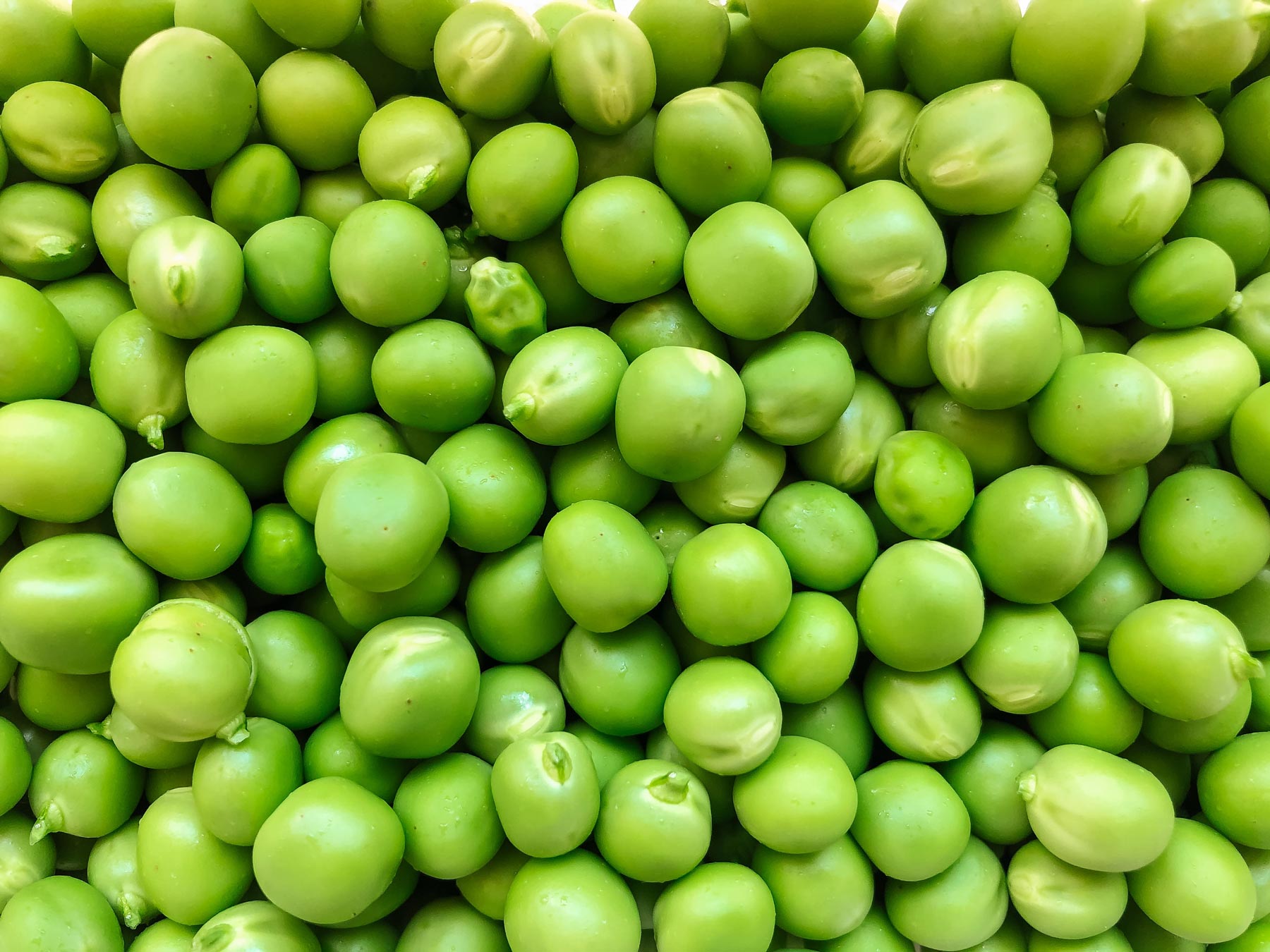
11. Broccoli
Although most vegetables contain a small amount of protein,broccoli deserves a mention because it contains more than usual, around 5 grams per 100 grams. Plus, it has a diverse nutrient profile and is delicious!
12. Kale
The classic superfood, kale has become somewhat of a celebrity vegetable. Most are surprised to find that, alongside it’s long list of nutrients and antioxidants, it is also a good source of protein with about 5 grams per 100 grams.
13. Vegan Protein Supplements
Supplements can be a great way of increasing our protein intake, particularly if we have ambitious exercise goals! The best powders contain a mix of proteins from different sources, such as brown rice protein, pea protein, and more. This means you are getting a full amino acid profile.
Remember that while powders are a good supplement, they are not a substitute for a balanced diet rich in whole foods.
14. Nutritional Yeast
Affectionately known as ‘nooch’ amongst vegans, nutritional yeast flakes are a great way of adding protein and vitamin B12 to our diets. The big bonus is that, when sprinkled on top of pastas, stews, or soups, they add a wonderful ‘cheesy’ flavor. They are also a complete protein source and a 16 gram serving provides a huge 8 grams of protein!
15. Seaweed
Seaweed is not just a delicious addition to ramen or sushi, it packs a nutritional punch! One tablespoon provides around 4 grams of complete protein, so adding a few spoonfuls to any meal is an effective and delicious way of boosting your protein intake.
16. Spirulina
This green algae-based supplement is truly a nutritional powerhouse. Two tablespoons (16 grams) provides 8 grams of complete protein, alongside magnesium, riboflavin, manganese, potassium, and many other nutrients that are essential for good health.

17. Oats
Oats are one of our favorite foods—they truly are a vegan’s reliable best friend. Although predominantly a carbohydrate, oats actually contain around 5 grams of high-quality protein per cup. So, when paired with a handful of your favorite nuts, a spoonful of chia seeds, and a cup of soy milk we get a high-protein, healthful breakfast.
18. Sweetcorn
Although not a big hitter when it comes to protein, this grain still provides 5 grams of protein per 100 grams. Plus, it is delicious and versatile.
19. Fruits
Fruits are not known for their protein content, but there are some standouts that are worth adding to your diet for a little extra! Look out for guava, cherimoyas, mulberries, blackberries, nectarines, and bananas, which all pack around 2-4 grams of protein per cup!
20. Meat Substitutes
Some specific meat substitutes are worth mentioning on this list. Beyond Meat products, for example, are delicious and resemble meat products extremely effectively. They are made of a blend of brown rice, pea, and hemp protein, making them a complete protein source and low in fat.
Why Is Protein Important?
Protein is the building block of the human body. We need it to build our muscles, as well as make our hair, blood, antibodies, enzymes, and more! It’s no wonder animal products became so dominant in people’s diets—meat companies have used protein as a marketing tool to get people to believe that meat and dairy are the only reliable sources of the nutrient we need the most! But this is just plain wrong—and with a balanced diet, plant proteins are just as effective, and come free from the huge carbon footprint, long list of health risks, and ethical nightmares that weigh down animal products.
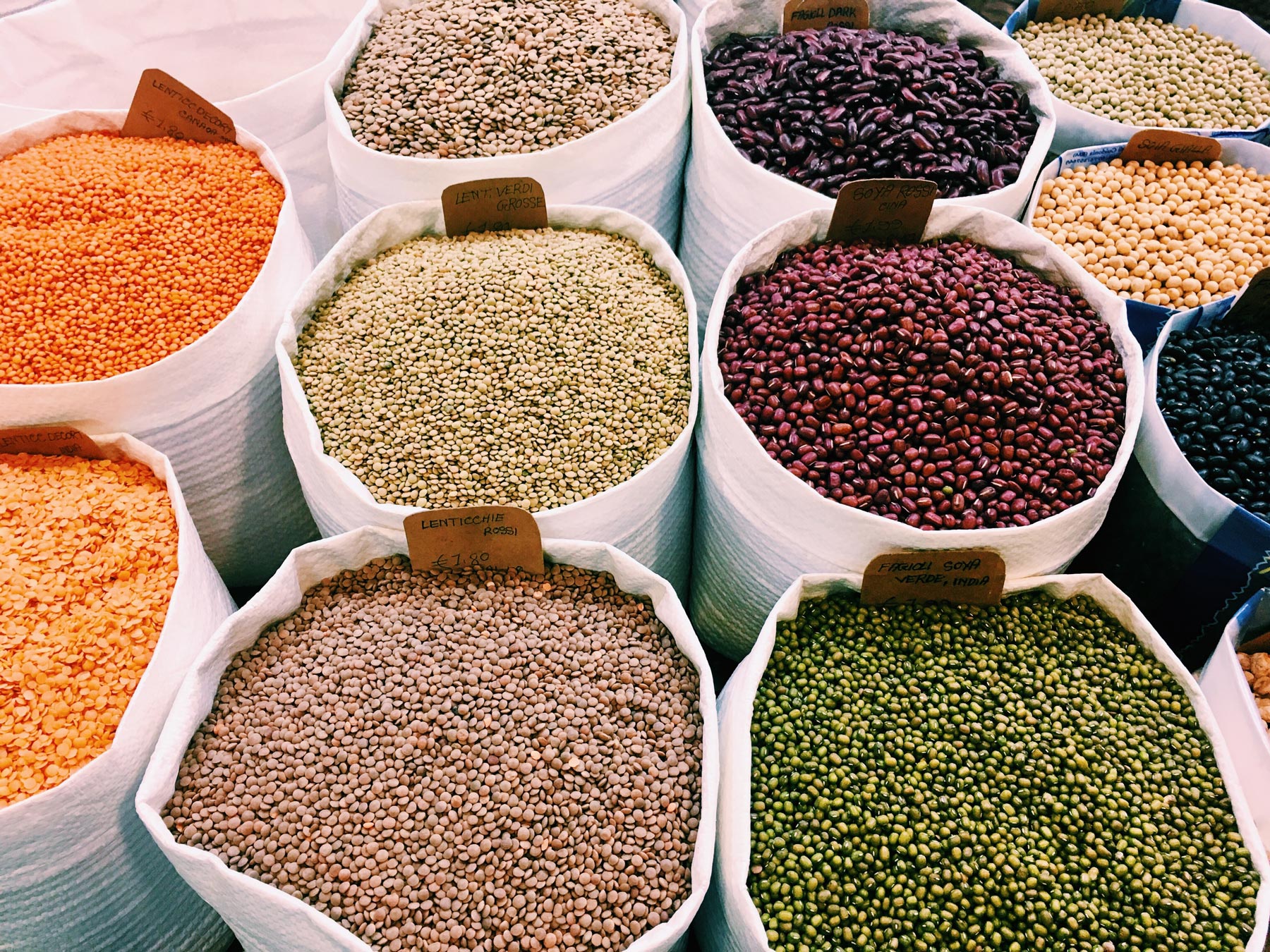
Plant Vs. Animal Protein
Plant proteins win this head-to-head when it comes to almost every topic. They are better for the planet, better for our health, and better for animals. They are also delicious, abundant, and cost effective.
It is important to address the sometimes confusing issue of amino-acids. Amino acids are the molecules that form proteins, and they are essential to life.There are nine essential amino acids that we must get from food, and ‘complete proteins’ possess all of them, while others only possess some. However, there are many complete plant proteins. Soy products, such as tofu, tempeh, or any soy-based meat alternative, as well as quinoa, seaweed, nutritional yeast, and many meat alternatives, all contain all nine amino acids.
Vegans simply consume a varied profile of plant proteins regularly to make sure they are getting all nine amino acids, and you don’t need to eat a complete protein with each meal. For example, eating almonds with your breakfast, then chickpeas with your lunch, means you are getting all nine essential aminos across those two foods. This makes getting all nine essential amino acids quite simple, so all the benefits of a varied, balanced diet are enjoyed, with none of the drawbacks of meat-based proteins.
Conclusion
With so many vegan sources, there is always an option for boosting our protein intake! Marketing from the animal agriculture industry has led to the myth that meat, eggs, and dairy are the only effective forms of protein, which is just plain wrong. In fact, animal-based foods, whilst high in protein, come with a long list of health risks, devastating environmental impacts, and contribute to the horrendous suffering of millions of sentient animals every year.
Our list of 20 vegan sources of protein are healthy, ethical, and don’t contribute to destroying the planet. Just one of many vegan win-win-wins!
